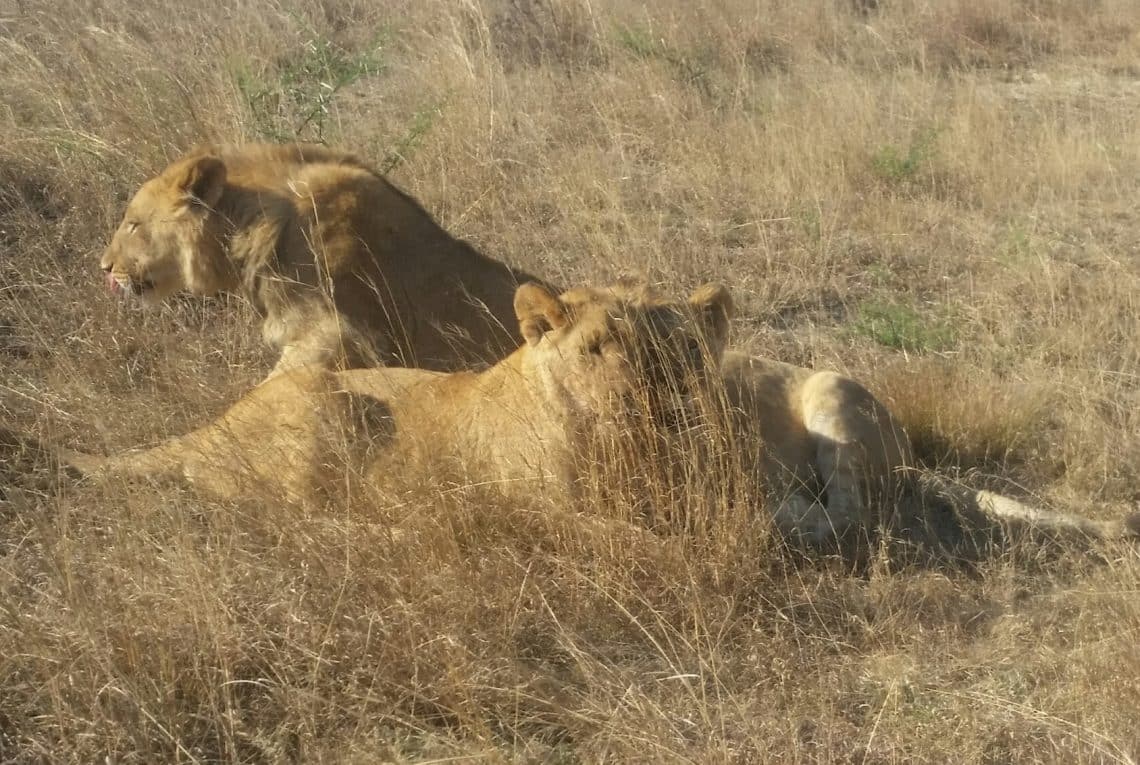By Byron Mutingwende
The wildlife conservation project being spearheaded by the Antelope Park is bringing numerous benefits to participating local communities and the environment.
Tourists from the United Kingdom who were on a tour of the country prior, during and after the Sanganai Hlanganani Tourism Expo, courtesy of the Zimbabwe Tourism Authority, had the opportunity to experience the wildlife management programme at Antelope Park where they learnt about the importance of protecting animals and the environment.
Through its African Lion and Environmental Research Trust (ALERT) programmes, communities are being assisted with human-wildlife conflict mitigation and conservation classes for schools and on other conventional educational programmes.
“In Zimbabwe, various community programmes are run in Victoria Falls, Gweru and in the communities surrounding Chizarira National Park, and in Livingstone, Zambia, a number of schools benefit from the input of ALERT, including school classroom construction.
“Whilst lion conservation is still the main focus of ALERT’S activities, other activities are also being studied, tying in with our holistic approach to conservation. This includes research on spotted hyena, giraffe and elephant,” said Antelope Park Director, Andrew Conolly.
He said for conservation efforts to be successful, the socio-economic, cultural, legal and political factors have to be taken into account in conjunction with geographical and bio-physical factors.
There is on-going lion research at the 4700 square kilometre Chizararira National Park not only meant to establish their population status, but to understand their movement in light of recent livestock attacks. There is a plan to put some collars on the lions to understand their movements and population dynamics. There is also research on the spotted hyena, the giraffe, and on predator occupancy, the Africa elephant and the hman/lion conflict mitigation.
Human-lion conflict issues are widespread across Africa and constitute one of the main threats to existing wild lion populations. Human population growth and encroachment into protected areas, and an increasing shortage of prey availability have resulted in increasing contact between humans and lions, often with serious consequences for lions, people and livestock. As a result, impoverished communities living on the borders of protected areas view lions as a problem, and not an asset.
“Unless the Park Management Authority is able to deal with conflict issues effectively, entire prides of lions may be poisoned to protect livestock. In Kenya alone, local communities kill an estimated 100 lions every year in retaliatory killings. Mitigation of such human-wildlife conflict is a conservation priority,” said Conolly.
ALERT’s educational development programme aims to provide support in improving literacy and teacher-pupil ratios. The programmes are running in Zimbabwe (Gweru, Victoria Falls and Sinansengwe), and in Zambia (Livingstone) supporting 12 schools, which together serve over 4 000 children. It is cuttrntly facilitating English literacy projects at seven schools in Gweru and victoria Falls in Zimbabwe, and Livingstone in Zambia through Reading Clubs, which are aimed at improving literacy levels in the local community as well as developing critical thinking skills.
ALERT, in partnership with Coventry University UK, and John Taylor High School UK, is providing a Basic Life Skills programme, which aims to give students experience in developing ‘soft skills’ that will support them in their home lives, future education and will make them both more enjoyable and more responsible citizens.
In addition to conventional education support, ALERT provides conservation education classes to primary school learners. These classes encourage young people to engage with the natural environment in which they live and assist them in understanding the advantages of living alongside and conserving locl wildlife habitats and ecosystems.
Communities on the periphery of wildlife conservation areas often endure frequent droughts, floods and seasonal fluctuations in rainfall resulting in food insecurity. They also heavily rely on natural resources like firewood and game meat so they end up in direct competition with wildlife for survival. ALERT gives community members agricultural training and assistance working in the garden to grow a variety of crops.
ALERT provides manpower in the form of volunteers to the Mkoba Polyclinic and Mutapa Clinic in Gweru who assist with many of the routine tasks such as counting pills, weighing babies, laundry, and assisting during review days for children with HIV.






